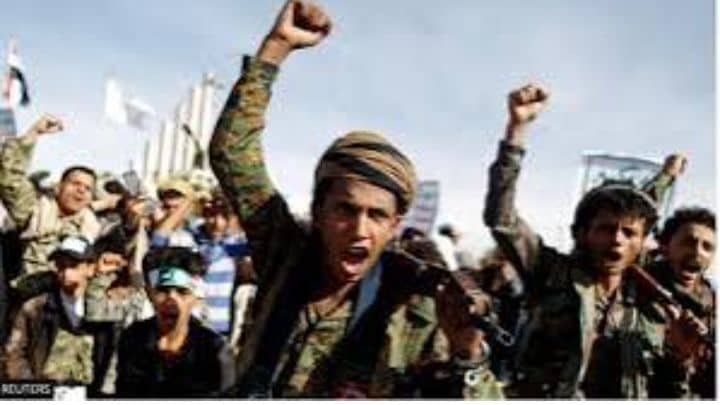The Invisible Hands of Chaos: Unveiling the Houthi Rebels’ True Intentions in the Middle East
The Houthi movement, also known as Ansar Allah, emerged in the 1990s in Saada Governorate, Yemen. The group’s ideology is influenced by Hezbollah and focuses on defending their community from discrimination and fighting against the alleged expansion of Salafism in Yemen. According to a report by the International Crisis Group, the Houthi movement’s early leader, Hussein al-Houthi, was killed by the Yemeni military in 2004, sparking the Houthi insurgency (International Crisis Group, 2020).
The ongoing civil war in Yemen has resulted in a devastating humanitarian crisis, with thousands of civilians killed or injured. According to the United Nations, between March 2015 and August 2022, there were over 24,000 civilian casualties, including over 10,000 killed and over 14,000 injured (United Nations, 2022). The Houthis have been accused of targeting civilians and using child soldiers, which has drawn widespread international condemnation.
Economic Impact of the Conflict
The conflict in Yemen has had a severe impact on the country’s economy. According to the World Bank, Yemen’s GDP contracted by over 50% between 2015 and 2020, and the poverty rate increased from 34% in 2014 to over 80% in 2020 (World Bank, 2022). The Houthis’ control of key ports, including Hodeida, has disrupted the flow of goods and humanitarian aid, exacerbating the economic crisis.
Houthi Military Capabilities
The Houthis have developed significant military capabilities, including ballistic missiles and drones. According to a report by the Center for Strategic and International Studies, the Houthis have launched over 200 ballistic missiles and drones at targets in Saudi Arabia and the United Arab Emirates since 2015 (Center for Strategic and International Studies, 2022). The Houthis’ military capabilities have been supported by Iran, which has provided the group with military equipment and training.
International Intervention and Diplomatic Efforts
The conflict in Yemen has drawn international attention, with several countries intervening militarily or diplomatically. According to a report by the Brookings Institution, the Saudi-led coalition has conducted over 20,000 airstrikes in Yemen since 2015, resulting in significant civilian casualties (Brookings Institution, 2022). Diplomatic efforts to resolve the conflict have been led by the United Nations, which has facilitated several rounds of peace talks between the Houthis and the Yemeni government.
Human Rights Abuses and War Crimes
The conflict in Yemen has been marked by widespread human rights abuses and war crimes. According to a report by Human Rights Watch, the Houthis have been responsible for numerous human rights abuses, including arbitrary arrests, torture, and enforced disappearances (Human Rights Watch, 2022). The Saudi-led coalition has also been accused of committing war crimes, including targeting civilians and using cluster bombs.
Despite Trumpism, causing Global Peace Overtures, why the Recent Relentless ‘Rocketfare’ against Israel?
Despite recent peace agreements between Israel and some of its neighbors, the Houthis have continued to attack Israeli targets, frustrating peace efforts in the region. The Houthis’ actions maybe motivated by a desire to maintain their relevance and power, protect Iranian interests, and gain leverage for future negotiations.
The conflict in Yemen is multifaceted, with various factions involved, including the Houthis, the Yemeni government, and Saudi Arabia. The Houthis control strategic locations, such as the port city of Hodeida, giving them significant influence over the flow of goods and humanitarian aid. The conflict has resulted in significant human suffering, economic losses, and regional instability.
The Houthis’ continued attacks on Israeli targets can be attributed to their ideological motivations, including opposition to Israeli and Western influence in the region. By maintaining a state of conflict, the Houthis can unify various opposition groups in Yemen against a common enemy, gain economic benefits from control over smuggling routes, and demonstrate their commitment to their ideology.
The situation is further complicated by the involvement of external actors, including Iran and Saudi Arabia. Iran’s support for the Houthis has been significant, providing them with military equipment and training. Saudi Arabia, on the other hand, has led a military coalition against the Houthis, resulting in significant humanitarian consequences. A lasting resolution to the conflict will require a comprehensive and sustained effort from the international community.
Future Prospects and Challenges
The future prospects for Yemen remain uncertain, with several challenges ahead. According to a report by the Chatham House, the Houthis’ control of key territories and their military capabilities will make it difficult to negotiate a peace agreement (Chatham House, 2022). Additionally, the humanitarian crisis in Yemen will require significant international support to address the needs of millions of Yemenis affected by the conflict.

Personally, Yemen may just become another Haiti in the Middle East
Dr Chukwuemeka Ifegwu Eke writes from the University of Abuja Nigeria.







